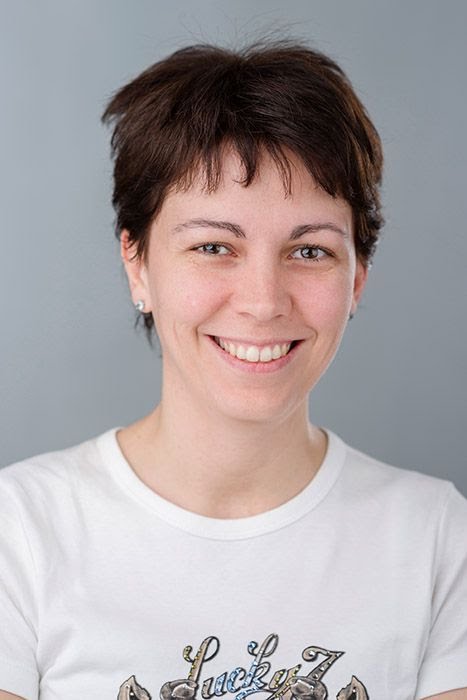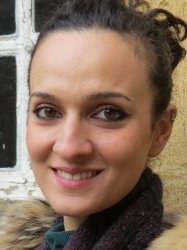Studying at the University of Verona
Here you can find information on the organisational aspects of the Programme, lecture timetables, learning activities and useful contact details for your time at the University, from enrolment to graduation.
Academic calendar
The academic calendar shows the deadlines and scheduled events that are relevant to students, teaching and technical-administrative staff of the University. Public holidays and University closures are also indicated. The academic year normally begins on 1 October each year and ends on 30 September of the following year.
Course calendar
The Academic Calendar sets out the degree programme lecture and exam timetables, as well as the relevant university closure dates..
| Period | From | To |
|---|---|---|
| Periodo generico | Oct 1, 2023 | May 31, 2024 |
| Primo semestre (lauree magistrali) | Oct 2, 2023 | Dec 22, 2023 |
| Secondo semestre (lauree magistrali) | Feb 26, 2024 | May 24, 2024 |
| Session | From | To |
|---|---|---|
| Sessione invernale (lauree magistrali) | Jan 8, 2024 | Feb 23, 2024 |
| Sessione estiva (lauree magistrali) | May 27, 2024 | Jul 12, 2024 |
| Sessione autunnale (lauree magistrali) | Aug 26, 2024 | Sep 20, 2024 |
| Session | From | To |
|---|---|---|
| Sessione autunnale a.a. 2022/2023 | Dec 5, 2023 | Dec 7, 2023 |
| Sessione invernale a.a. 2022/2023 | Apr 3, 2024 | Apr 5, 2024 |
| Sessione estiva a.a. 2023/2024 | Sep 4, 2024 | Sep 6, 2024 |
Exam calendar
Exam dates and rounds are managed by the relevant Economics Teaching and Student Services Unit.
To view all the exam sessions available, please use the Exam dashboard on ESSE3.
If you forgot your login details or have problems logging in, please contact the relevant IT HelpDesk, or check the login details recovery web page.
Should you have any doubts or questions, please check the Enrollment FAQs
Academic staff
 martina.menon@univr.it
martina.menon@univr.it
Study Plan
The Study Plan includes all modules, teaching and learning activities that each student will need to undertake during their time at the University.
Please select your Study Plan based on your enrollment year.
1° Year
| Modules | Credits | TAF | SSD |
|---|
One module between the following2° Year It will be activated in the A.Y. 2024/2025
| Modules | Credits | TAF | SSD |
|---|
Two modules among the followingTwo modules among the followingOne module between the following| Modules | Credits | TAF | SSD |
|---|
One module between the following| Modules | Credits | TAF | SSD |
|---|
Two modules among the followingTwo modules among the followingOne module between the following| Modules | Credits | TAF | SSD |
|---|
Legend | Type of training activity (TTA)
TAF (Type of Educational Activity) All courses and activities are classified into different types of educational activities, indicated by a letter.
Type D and Type F activities
Nei piani didattici di ciascun Corso di studio è previsto l’obbligo di conseguire un certo numero di crediti formativi mediante attività a scelta (chiamate anche "di tipologia D e F").
Oltre che in insegnamenti previsti nei piani didattici di altri corsi di studio e in certificazioni linguistiche o informatiche secondo quanto specificato nei regolamenti di ciascun corso, tali attività possono consistere anche in iniziative extracurriculari di contenuto vario, quali ad esempio la partecipazione a un seminario o a un ciclo di seminari, la frequenza di laboratori didattici, lo svolgimento di project work, stage aggiuntivo, eccetera.
Come per ogni altra attività a scelta, è necessario che anche queste non costituiscano un duplicato di conoscenze e competenze già acquisite dallo studente.
Quelle elencate in questa pagina sono le iniziative extracurriculari che sono state approvate dalla Commissione didattica e quindi consentono a chi vi partecipa l'acquisizione dei CFU specificati, alle condizioni riportate nelle pagine di dettaglio di ciascuna iniziativa.
Si ricorda in proposito che:
- tutte queste iniziative richiedono, per l'acquisizione dei relativi CFU, il superamento di una prova di verifica delle competenze acquisite, secondo le indicazioni contenute nella sezione "Modalità d'esame" della singola attività;
- lo studente è tenuto a inserire nel proprio piano degli studi l'attività prescelta e a iscriversi all'appello appositamente creato per la verbalizzazione, la cui data viene stabilita dal docente di riferimento e pubblicata nella sezione "Modalità d'esame" della singola attività.
Scopri i percorsi formativi promossi dal Teaching and learning centre dell'Ateneo, destinati agli studenti iscritti ai corsi di laurea, volti alla promozione delle competenze trasversali: https://talc.univr.it/it/competenze-trasversali
CONTAMINATION LAB
Il Contamination Lab Verona (CLab Verona) è un percorso esperienziale con moduli dedicati all'innovazione e alla cultura d'impresa che offre la possibilità di lavorare in team con studenti e studentesse di tutti i corsi di studio per risolvere sfide lanciate da aziende ed enti. Il percorso permette di ricevere 6 CFU in ambito D o F. Scopri le sfide: https://www.univr.it/clabverona
ATTENZIONE: Per essere ammessi a sostenere una qualsiasi attività didattica, incluse quelle a scelta, è necessario essere iscritti all'anno di corso in cui essa viene offerta. Si raccomanda, pertanto, ai laureandi delle sessioni di dicembre e aprile di NON svolgere attività extracurriculari del nuovo anno accademico, cui loro non risultano iscritti, essendo tali sessioni di laurea con validità riferita all'anno accademico precedente. Quindi, per attività svolte in un anno accademico cui non si è iscritti, non si potrà dar luogo a riconoscimento di CFU.
| years | Modules | TAF | Teacher |
|---|---|---|---|
| 1° 2° | Thematic cycle of conferences on Women's "leadership": data, reflections and experiences | D |
Martina Menon
(Coordinator)
|
| 1° 2° | Educational laboratory on credit securitization | D |
Michele De Mari
(Coordinator)
|
| years | Modules | TAF | Teacher |
|---|---|---|---|
| 1° 2° | Data Analysis Laboratory with R (Verona) | D |
Marco Minozzo
(Coordinator)
|
| 1° 2° | Data Visualization Laboratory | D |
Marco Minozzo
(Coordinator)
|
| 1° 2° | Python Laboratory | D |
Marco Minozzo
(Coordinator)
|
| 1° 2° | Data Science Laboratory with SAP | D |
Marco Minozzo
(Coordinator)
|
| 1° 2° | Advanced Excel Laboratory (Verona) | D |
Marco Minozzo
(Coordinator)
|
| 1° 2° | Excel Laboratory (Verona) | D |
Marco Minozzo
(Coordinator)
|
| 1° 2° | Laboratory on research methods for business | D |
Cristina Florio
(Coordinator)
|
| 1° 2° | Laboratory on research methods for business | D |
Cristina Florio
(Coordinator)
|
| 1° 2° | Plan your future | D |
Paolo Roffia
(Coordinator)
|
| 1° 2° | Plan your future | D |
Paolo Roffia
(Coordinator)
|
| 1° 2° | Programming in Matlab | D |
Marco Minozzo
(Coordinator)
|
| 1° 2° | Programming in SAS | D |
Marco Minozzo
(Coordinator)
|
| years | Modules | TAF | Teacher |
|---|---|---|---|
| 1° 2° | Elements of financial risk management 2023/2024 | D |
Claudio Zoli
(Coordinator)
|
| 1° 2° | English for business and economics | F |
Claudio Zoli
(Coordinator)
|
| 1° 2° | Introduction to business plan | D |
Paolo Roffia
(Coordinator)
|
| 1° 2° | Introduction to Java programming | D |
Alessandro Gnoatto
(Coordinator)
|
| 1° 2° | Topics in applied economics and finance - 2023/2024 | D |
Claudio Zoli
(Coordinator)
|
| years | Modules | TAF | Teacher |
|---|---|---|---|
| 1° 2° | Data discovery for business decisions | D |
Claudio Zoli
(Coordinator)
|
| 1° 2° | Digital experiments in economics - 2023/2024 | D |
Claudio Zoli
(Coordinator)
|
| 1° 2° | Key markets / business approach & business negotiations - 2023/2024 | D |
Angelo Zago
(Coordinator)
|
| 1° 2° | Professional communication for economics – 2023/2024 | D |
Claudio Zoli
(Coordinator)
|
| 1° 2° | The why, the what and the how of structural equation modelling | D |
Cristina Florio
(Coordinator)
|
| 1° 2° | Topics in economics and ethics of artificial intelligence- 2023/2024 | D |
Claudio Zoli
(Coordinator)
|
Time series and forecasting (2024/2025)
Teaching code
4S008977
Teacher
Coordinator
Credits
9
Language
English
Scientific Disciplinary Sector (SSD)
SECS-P/05 - ECONOMETRICS
Period
Secondo semestre LM dal Feb 17, 2025 al May 23, 2025.
Courses Single
Authorized
Learning objectives
The module aims to introduce students to time series analysis, in order to understand how economic phenomena evolve over time. It will present the main econometric tools used to make forecasts and assess their accuracy on economic and financial time series. The use of statistical and econometric professional packages will complement the study of theoretical concepts. At the end of the module, students will prove to be able to critically interpret dynamic models for the analysis and forecast of economic and financial variables, in response to real problems.
Career prospects
Module/Programme news
News for students
There you will find information, resources and services useful during your time at the University (Student’s exam record, your study plan on ESSE3, Distance Learning courses, university email account, office forms, administrative procedures, etc.). You can log into MyUnivr with your GIA login details: only in this way will you be able to receive notification of all the notices from your teachers and your secretariat via email and soon also via the Univr app.
Graduation
List of thesis proposals
| theses proposals | Research area |
|---|---|
| PMI (SMES) and financial performance | MANAGEMENT OF ENTERPRISES - MANAGEMENT OF ENTERPRISES |
| Corporate governance, financial performance and international business | Various topics |
Doppio Titolo
Grazie ad una rete di accordi con Atenei esteri, l’Università di Verona offre percorsi formativi internazionali che consentono l’acquisizione di un doppio titolo di studio. L’ammissione ad un CdS a doppio titolo consente di conseguire contemporaneamente, nel tempo di un normale ciclo di studi (di cui una parte viene svolta all'estero), sia il titolo di studio dell’Università di Verona che il titolo rilasciato dall'Ateneo partner, garantendo di vedere riconosciuto il diploma di laurea in entrambi i Paesi.
L'accesso al doppio titolo (così come l’eventuale sostegno finanziario) è regolato da uno specifico bando, e il numero di posti è limitato.

 045 8028 508
045 8028 508
















